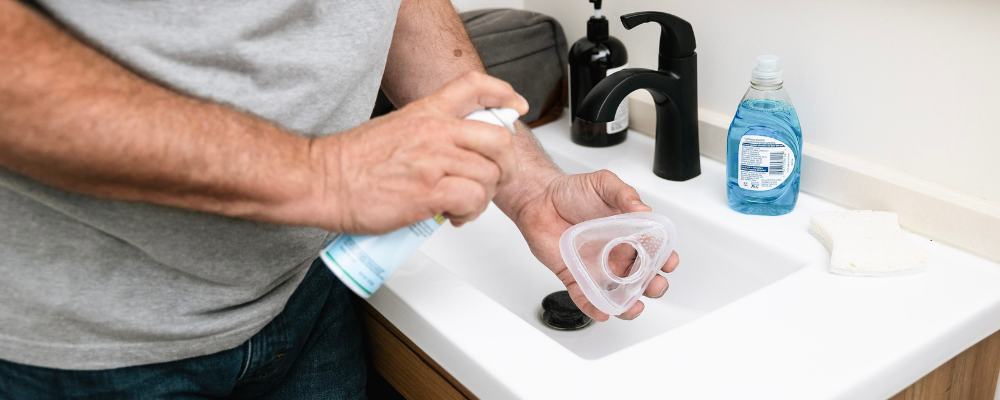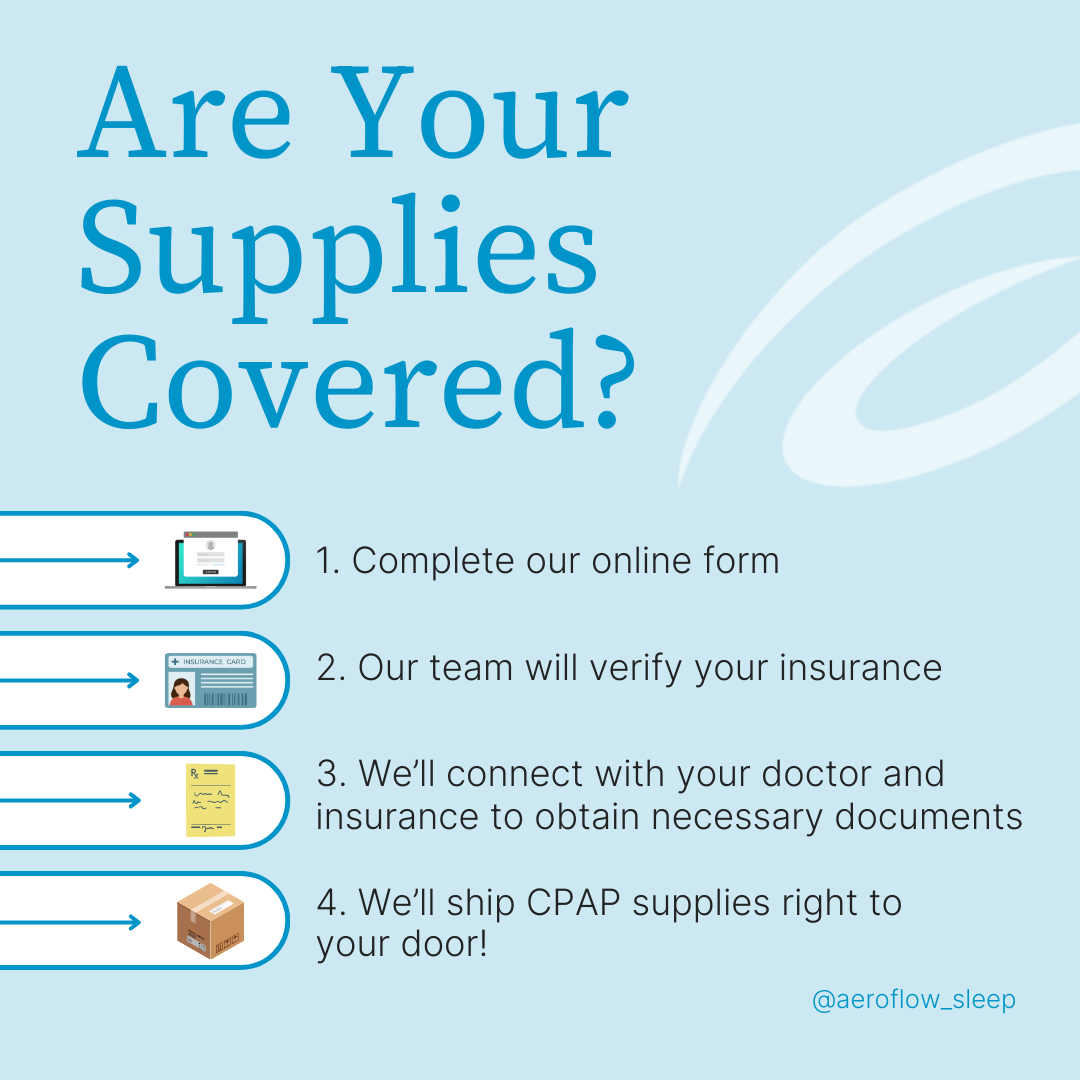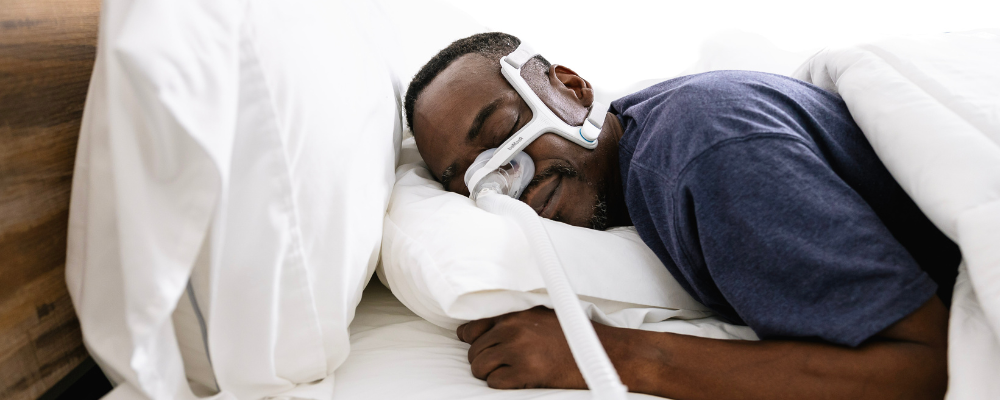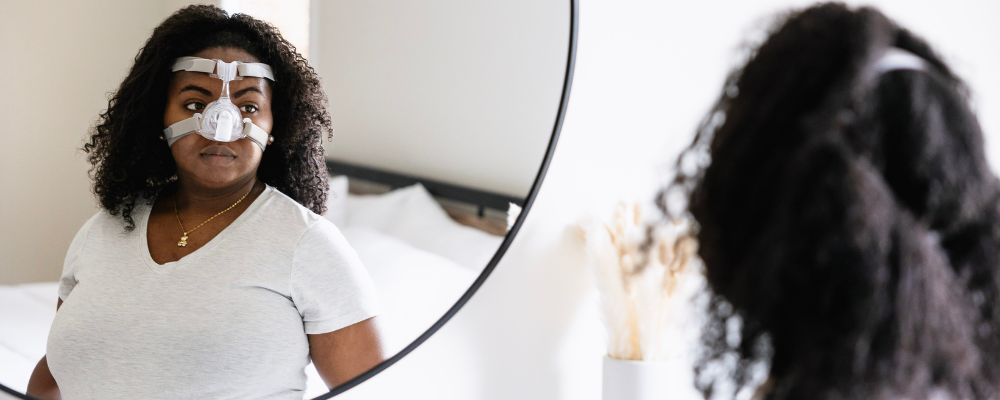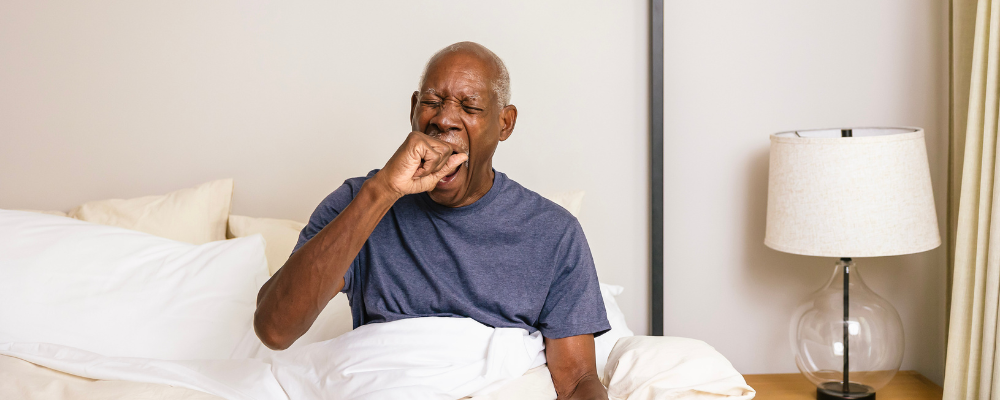Aeroflow Sleep is well aware of the fact that cleaning your CPAP supplies can be annoying. Let’s face it; any extra chore that gets added to your to-do list is likely going to be zero fun (unless you’re Mr. Clean). But seriously, skipping out on regular cleaning and replacement comes at a cost. Keep reading to learn more about the negative impacts of dirty CPAP equipment; like respiratory illness.
Can A CPAP Machine Give You An Ear Infection?
Generally speaking, a clean continuous positive airway pressure (CPAP) machine will not lead to an ear infection. Nor will a BiPAP or APAP machine. In fact, according to an article published in the National Library of Medicine, “A 2017 study shows that CPAP usage does not have a significant impact on the prevalence of infections.” This means that using a CPAP will not increase your likelihood for infection.
However, if your CPAP air pressure settings are incorrect, this may lead to other problems, even in the ears. A different study shared that one of the risks of OSA includes increased middle ear pressure, which can be caused by an incorrect CPAP pressure setting. If left untreated, this can lead to more serious issues; like a ruptured eardrum.
Now, if you have a dirty CPAP, your likelihood of developing an ear infection is much higher. Yep, we’re bolding that for emphasis! If there’s one thing to take away here, it’s the fact that using a dirty CPAP machine will significantly increase your risk for all sorts of infections, because pathogens, dust, and oils will build up on your supplies if they go uncleaned.
What Other Kinds Of Infections Can You Get From A Dirty CPAP?
If you do not regularly clean your CPAP, this aforementioned buildup can increase your risk for 4 different health problems; such as...
- Pneumonia: an infection of the lungs
- Pneumonitis: another inflammation of the lungs; often caused by allergens
- Respiratory Infections: ear, throat, lung, and sinus infections
- Skin Irritation, Acne, or Skin Infections
If you weren't grossed out enough, find out how bacteria growth develops on your supplies over time when you visit our YouTube channel.
What Are The Signs Of A Dirty CPAP?
Imagine a football player rewearing equipment that hasn’t been cleaned after using it. Gross, right? The same is true for CPAP users and their equipment, but this isn’t the only way you can tell yours is due for a cleaning.
Some key signs that it’s time to clean your CPAP device are its smell and appearance. If your equipment smells of mildew or mold, or if it looks dusty, you must clean your equipment as soon as possible.
Not only this, but with unclean equipment, you may begin to experience side effects similar to an allergic reaction; such as a sore throat, nasal congestion, runny nose, or sneezing. That risk isn’t worth it, so cleaning your supplies regularly is critical for healthy CPAP use.
How Do I Clean My CPAP Supplies?
Great question! Knowing when and how to clean your CPAP supplies can be a challenge. It’s important for you to clean your supplies daily, especially if you are sick. And when we say supplies, we’re talking about it all. Yep, we mean your CPAP mask, CPAP tubing, filter, and water chamber/humidifier.
DISCLAIMER: CPAP cleaning supplies—including sprays, wipes, and sanitizers—are often not covered by insurance.
Is My Dirty CPAP Even Worth Saving?
Unfortunately, after a certain period of time, cleaning is not enough to fully restore your CPAP to its healthiest state. Similar to your toothbrush, your CPAP equipment needs to be regularly replaced. However, this can get complicated as different parts have different replacement schedules.
To help make your life easier, Aeroflow Sleep put together a replacement guide, which outlines how often you need to replace supplies; including your disposable filters and mask cushions. While you can choose to pay for new parts out-of-pocket, you shouldn’t have to worry about that when you order CPAP supplies through insurance with Aeroflow Sleep.
We will work on your behalf to take the headache out of healthcare and help you get the CPAP supplies you need through insurance. Your supplies may be covered up to 100%, so check your eligibility now. And, if the supplies are so dirty that they can’t wait for your next scheduled replacement, give us a call. We’re happy to help!
References
Mercieca, Liam et al. “Continuous Positive Airway Pressure: Is it a route for infection in those with Obstructive Sleep Apnoea?.” Sleep science (Sao Paulo, Brazil) vol. 10,1 (2017): 28-34. doi:10.5935/1984-0063.20170005
McCormick, Justin P et al. “Otic Barotrauma Resulting from Continuous Positive Airway Pressure: Case Report and Literature Review.” Ochsner journal vol. 16,2 (2016): 146-9.


